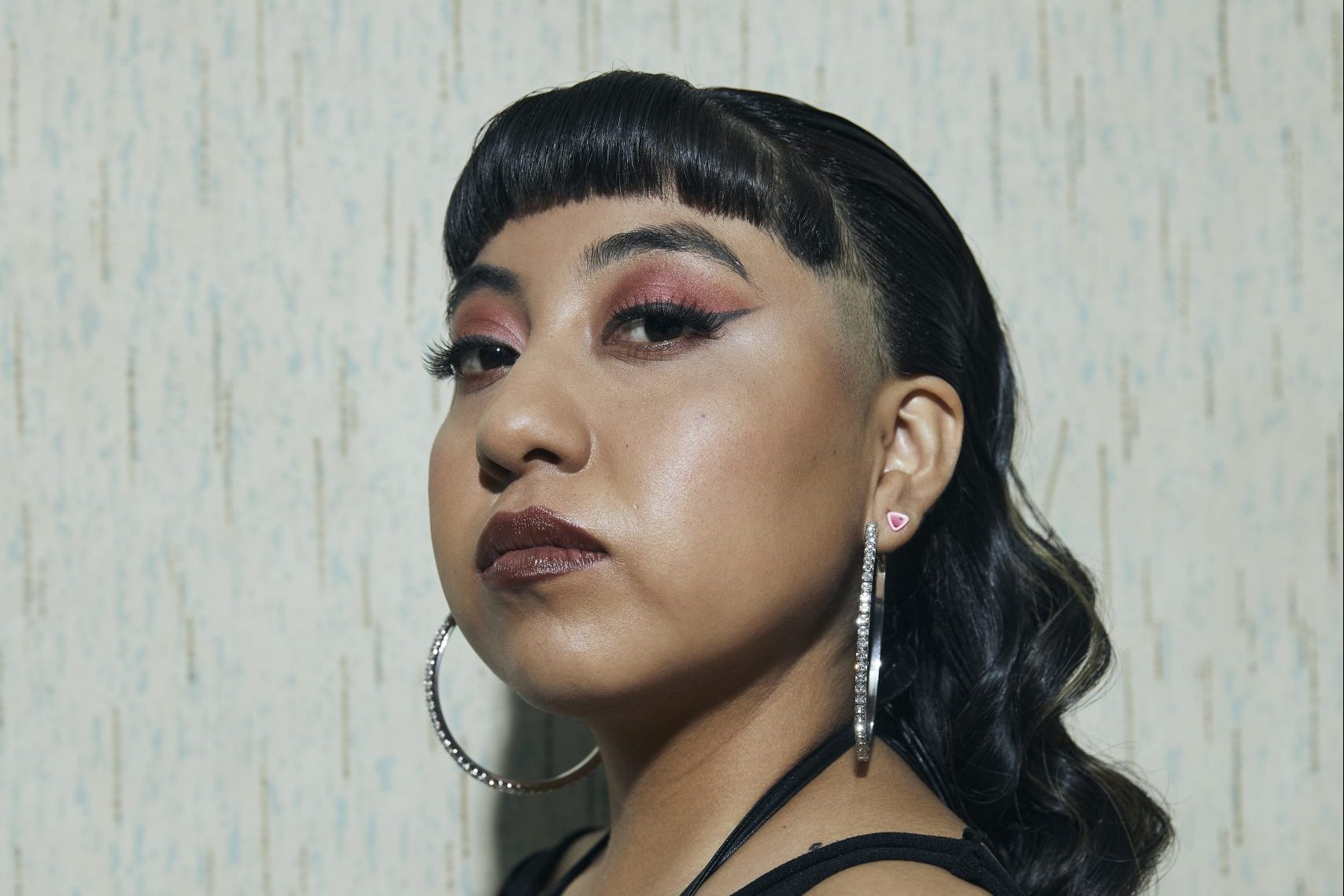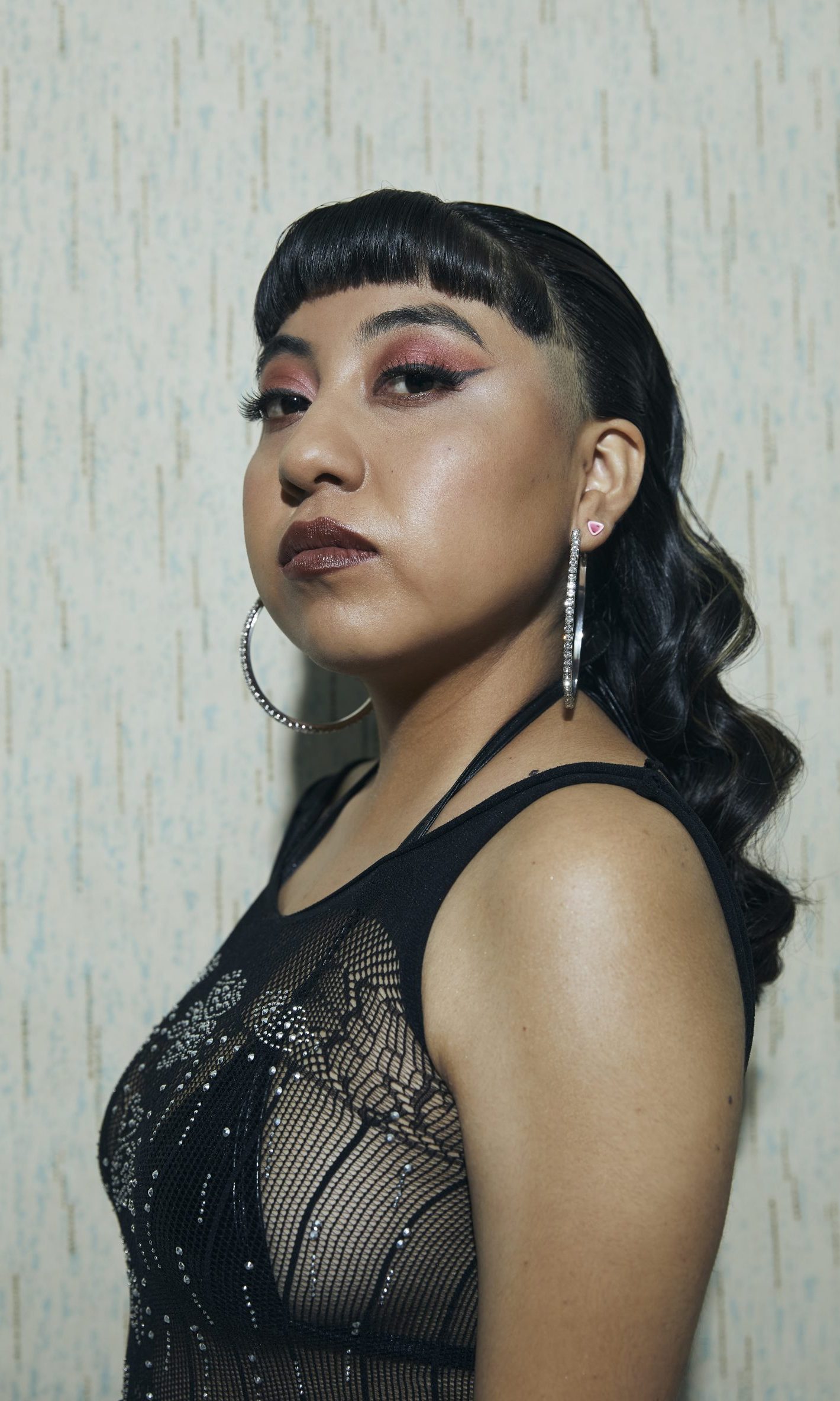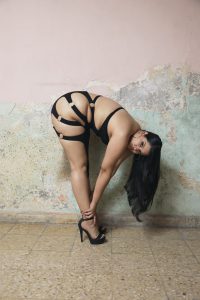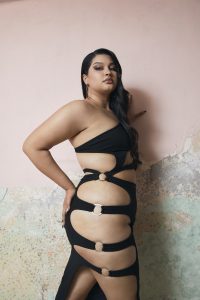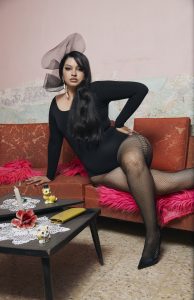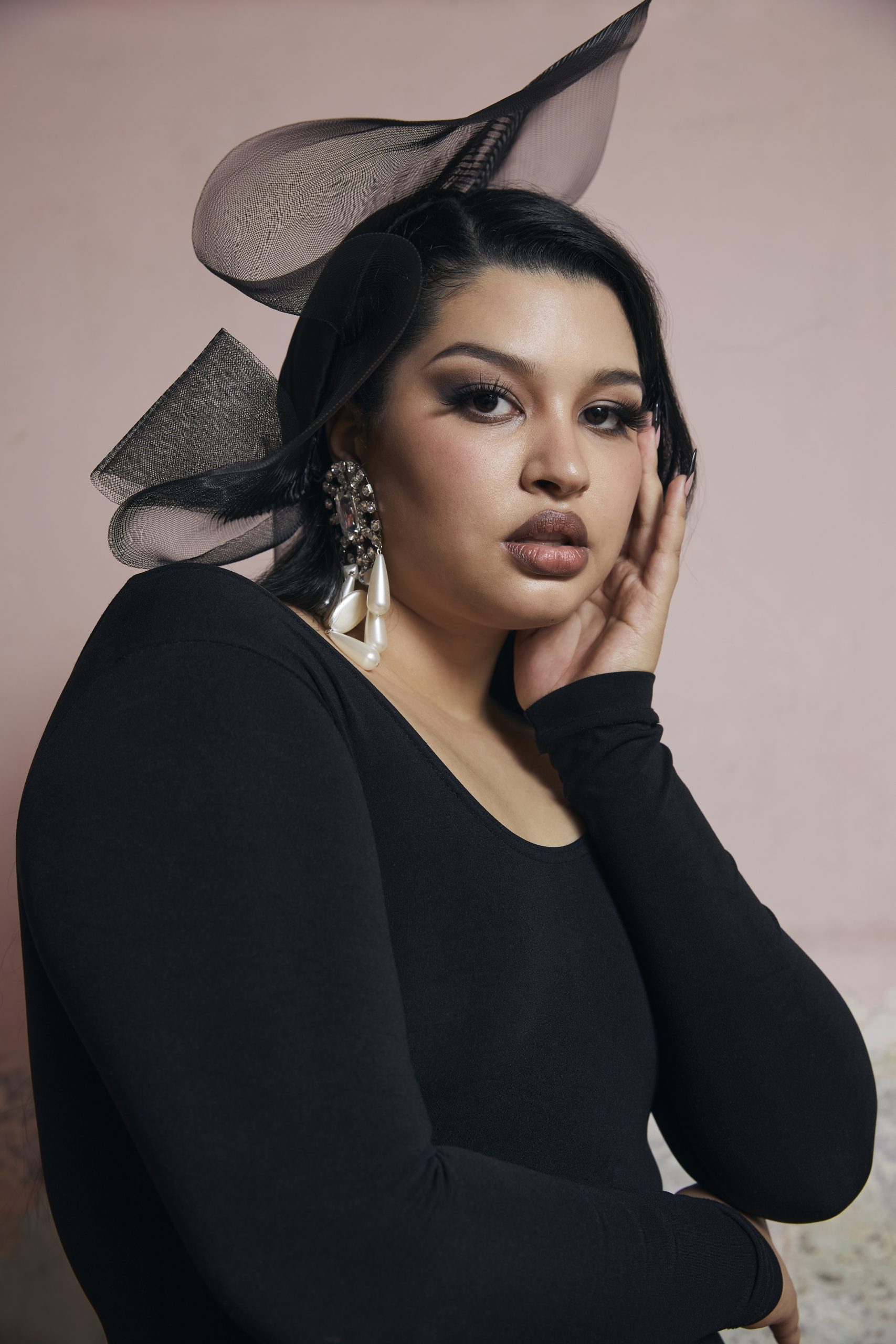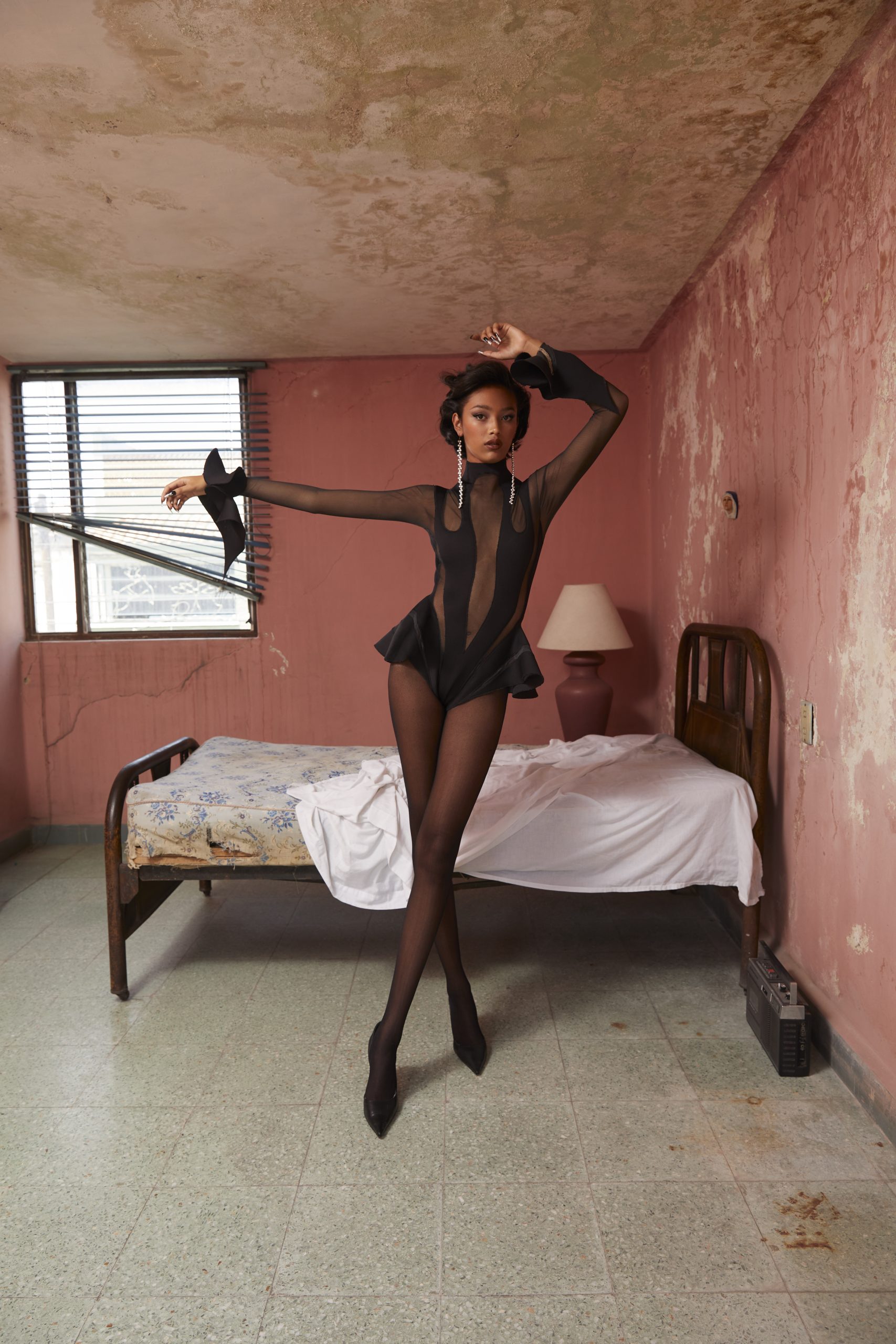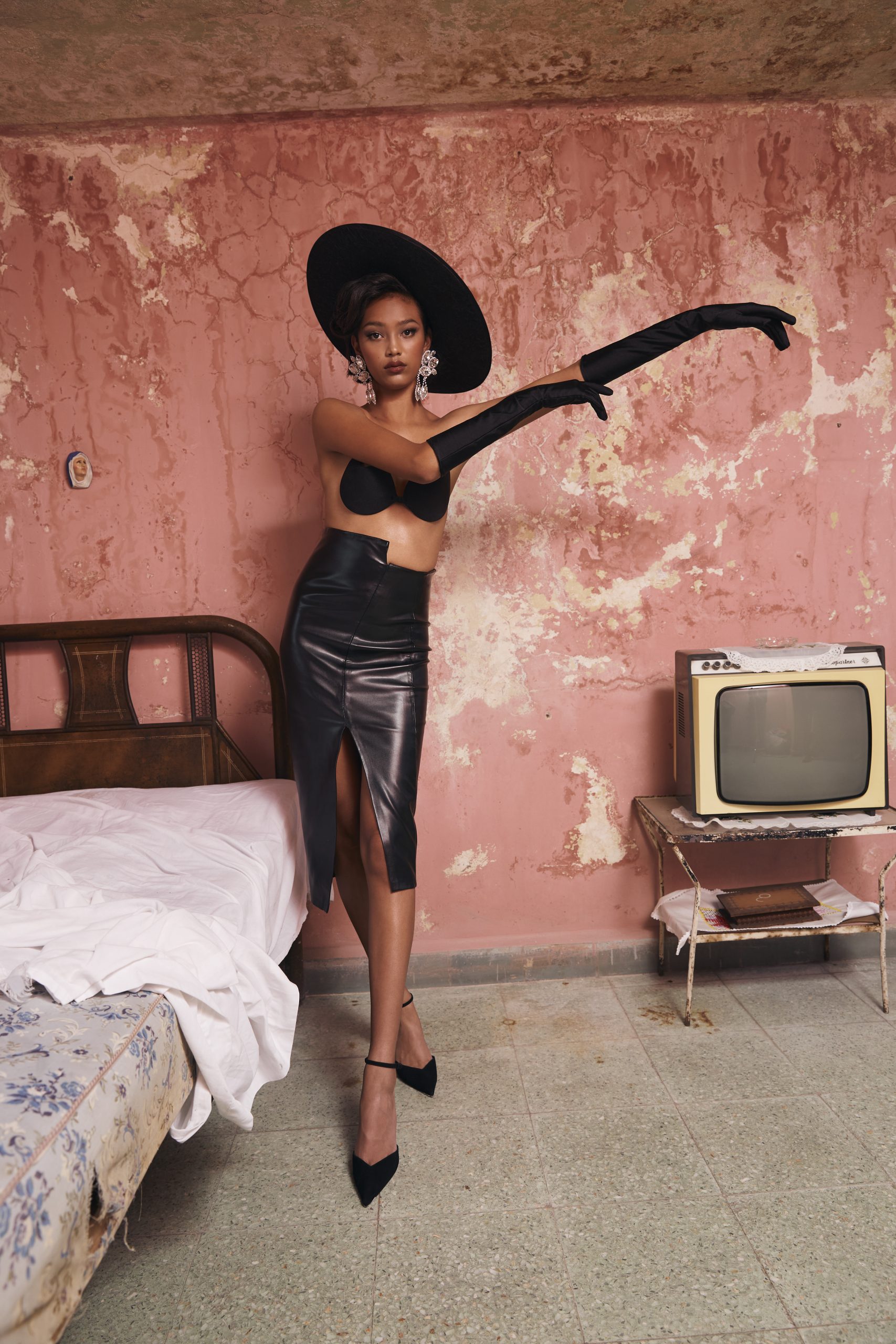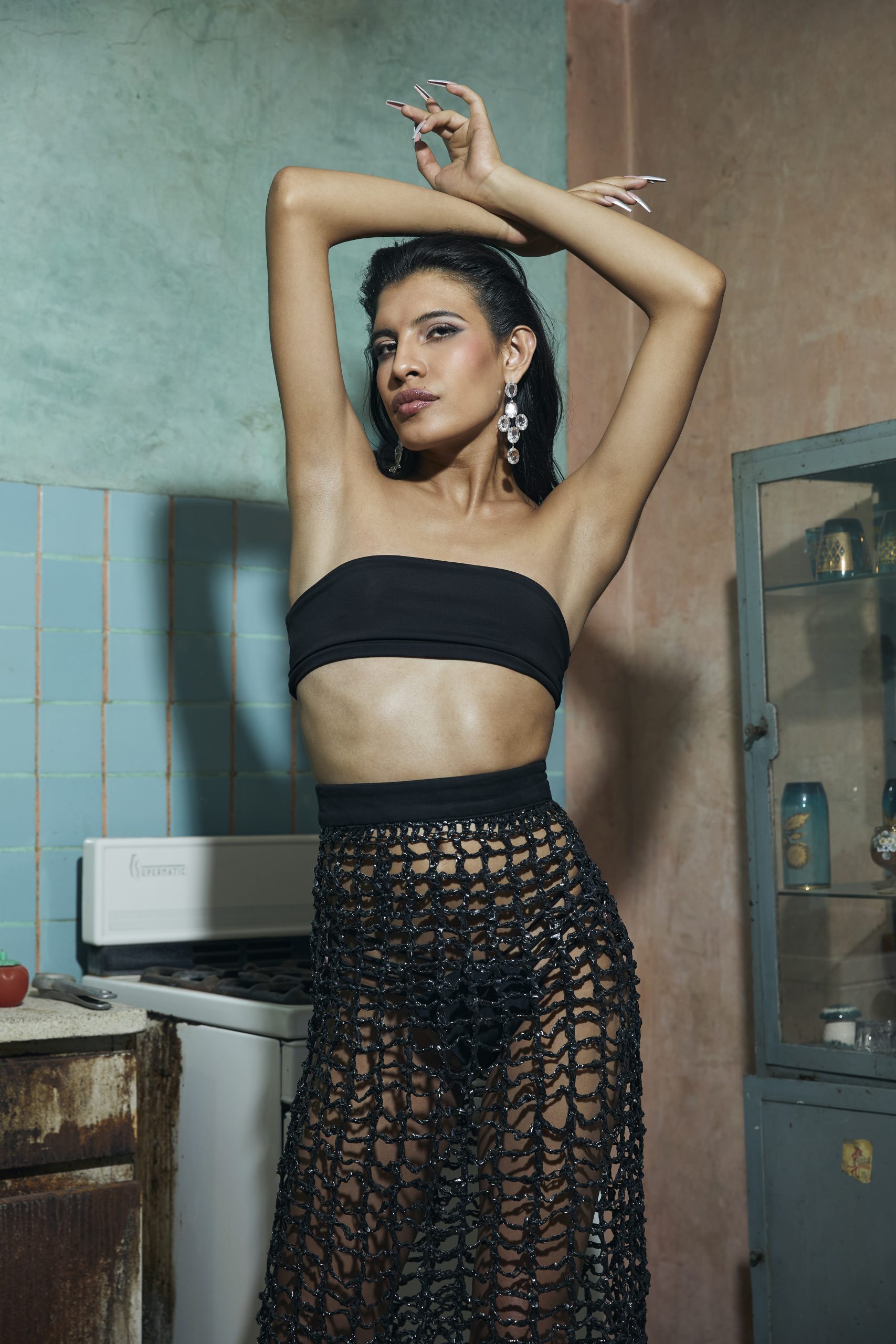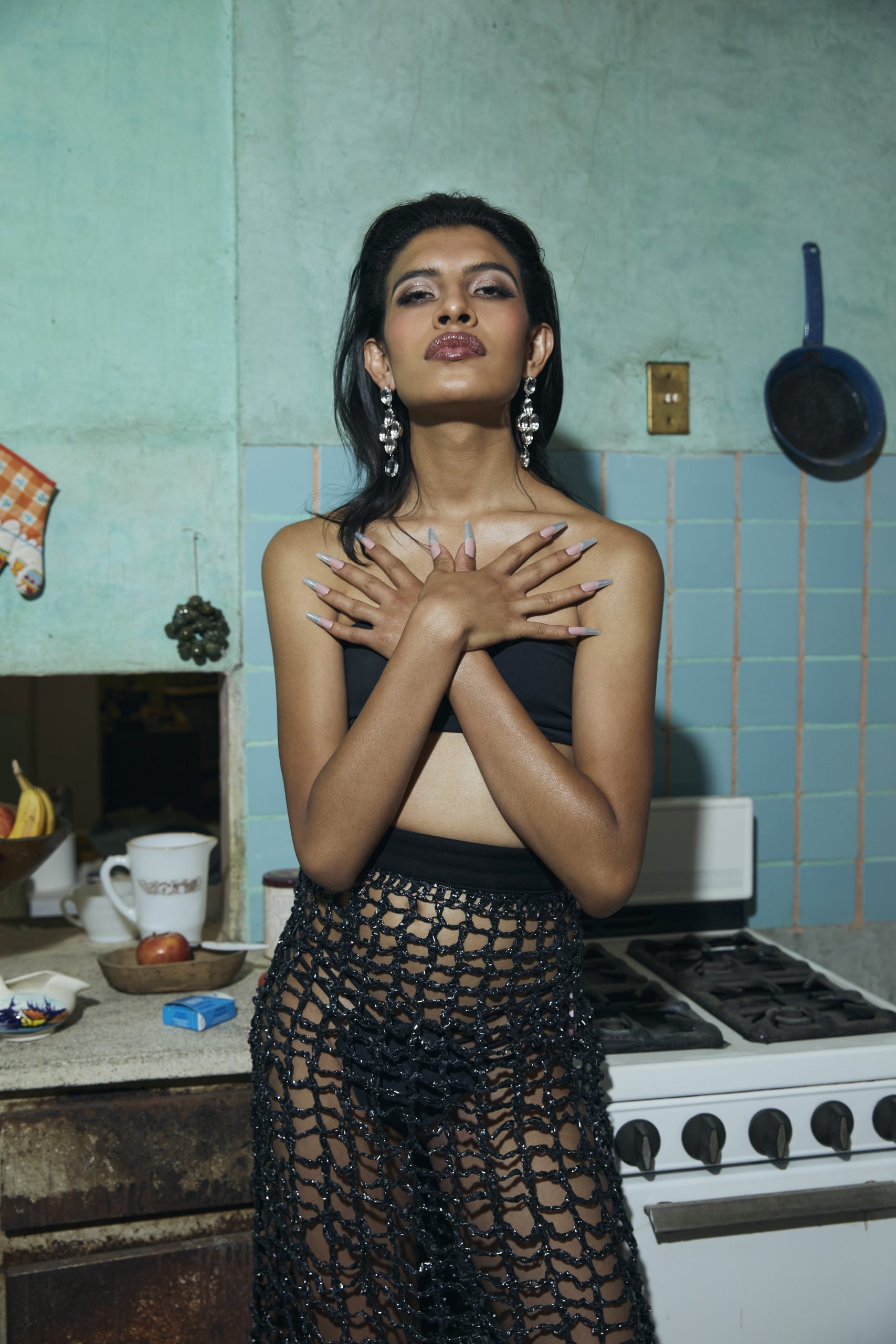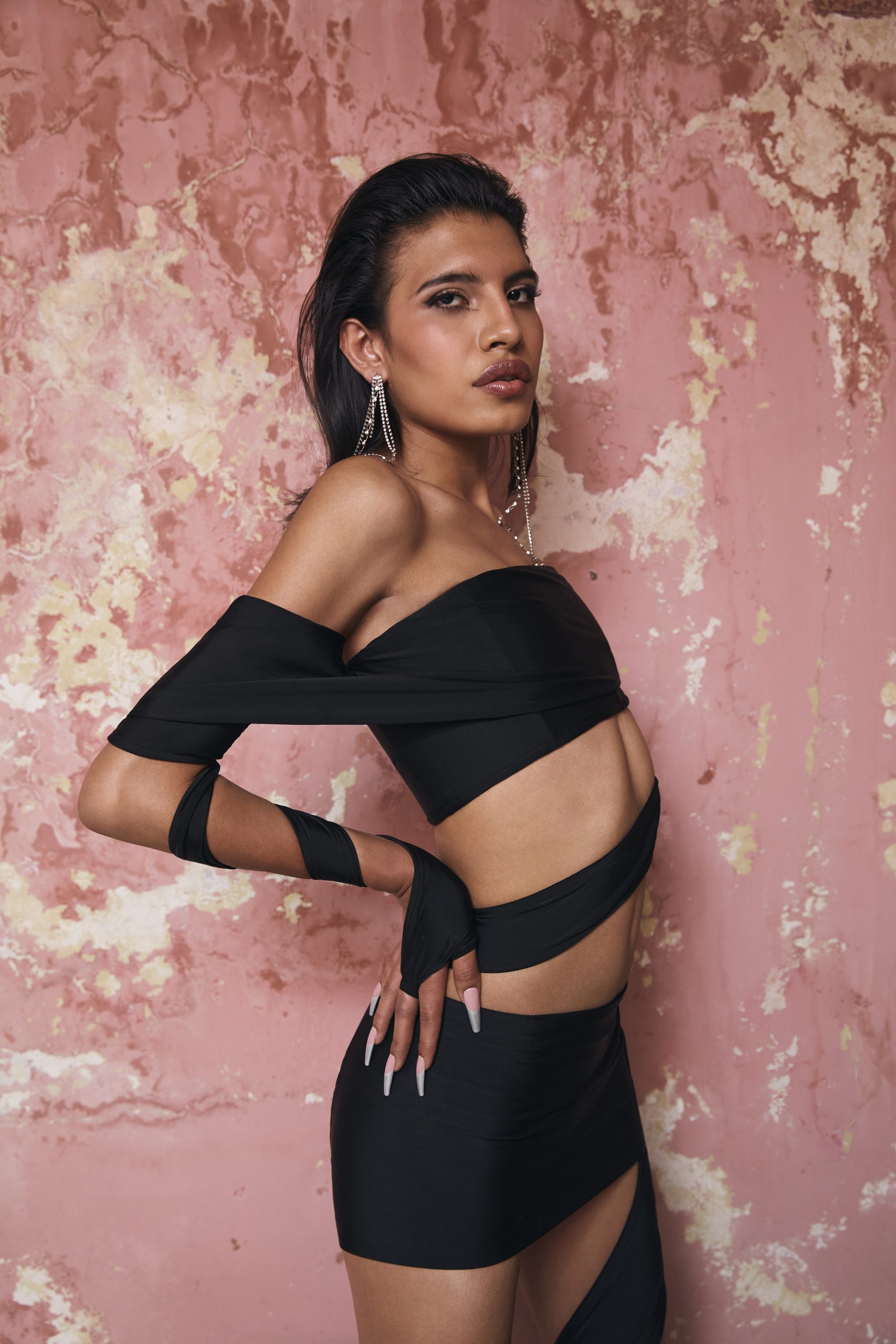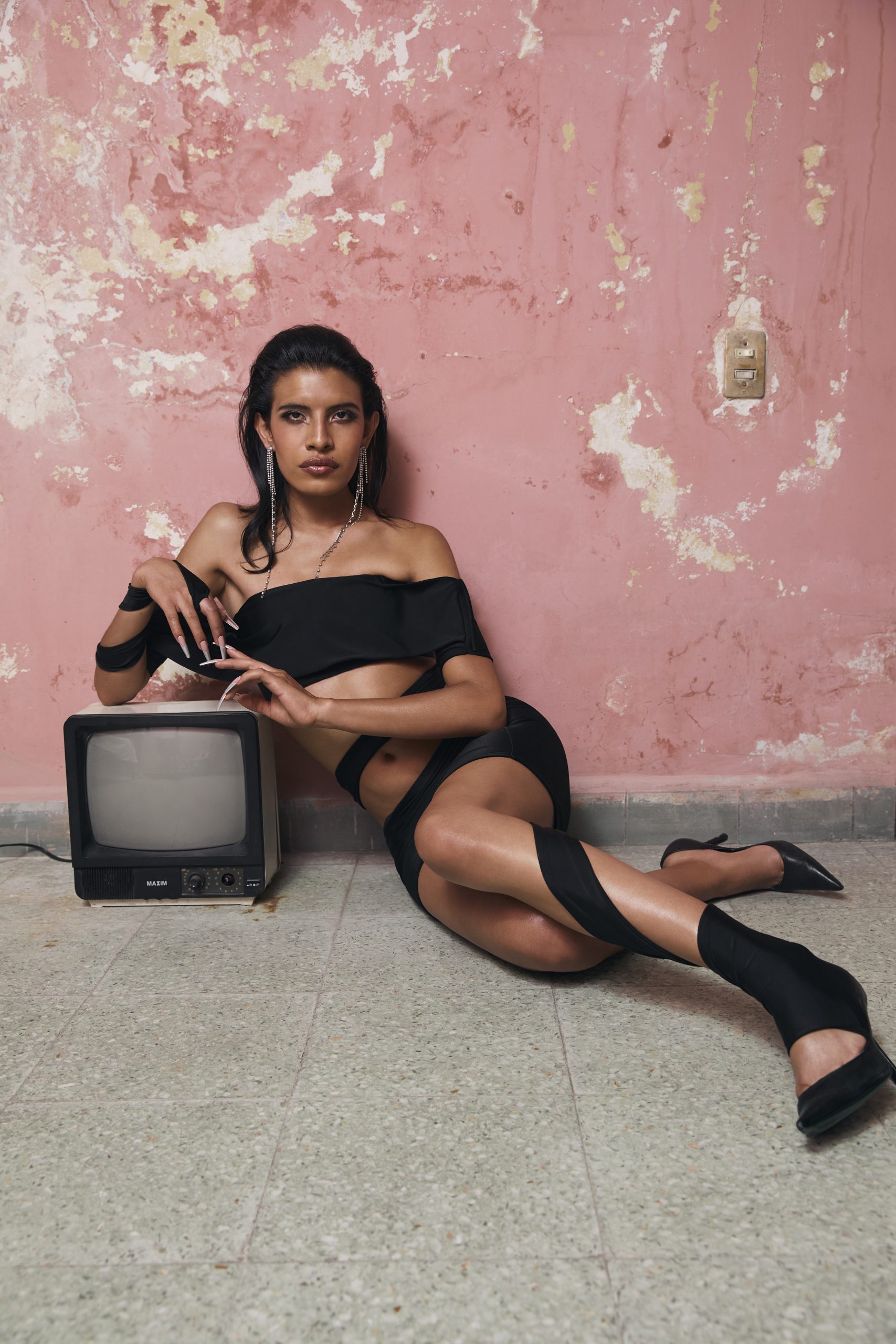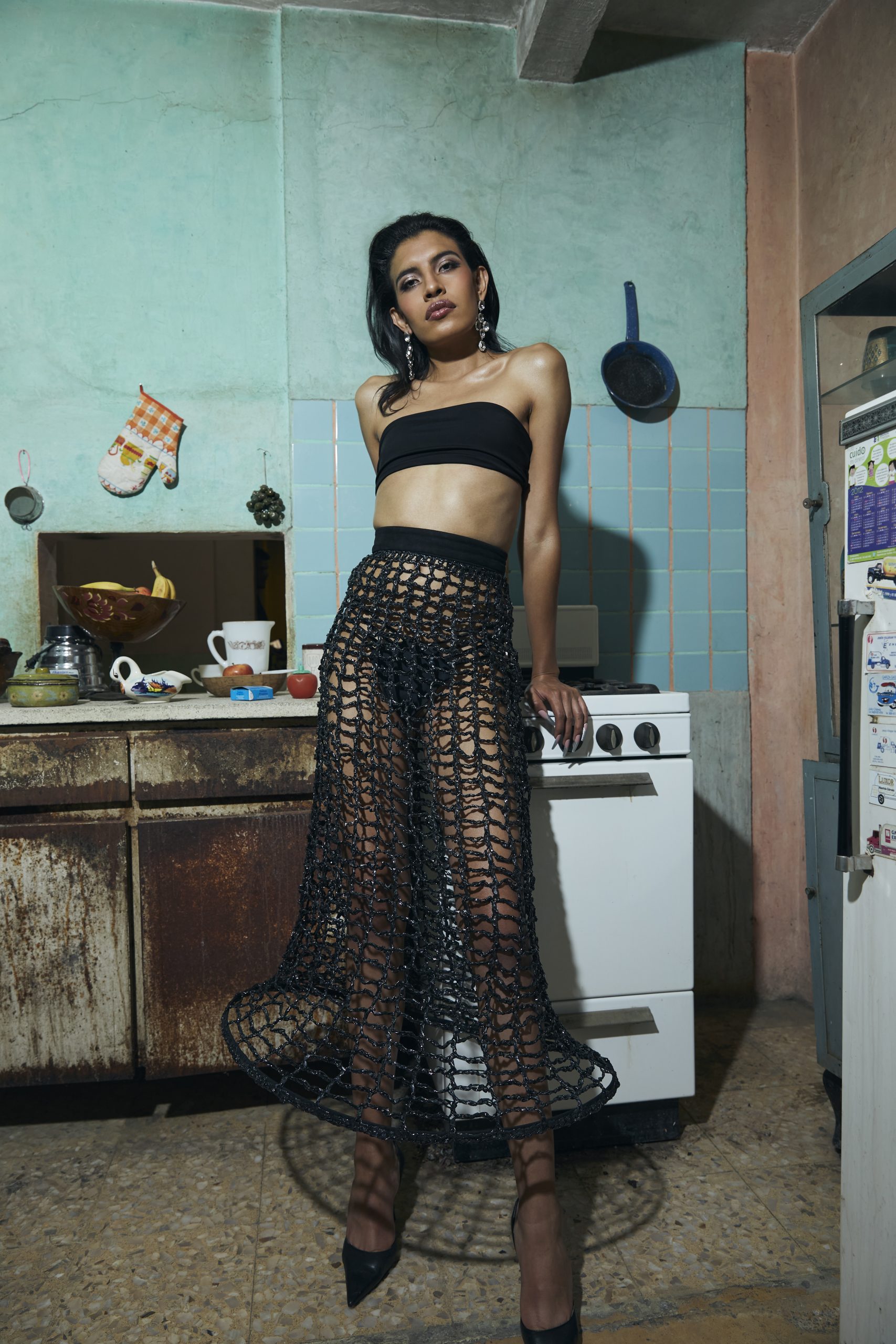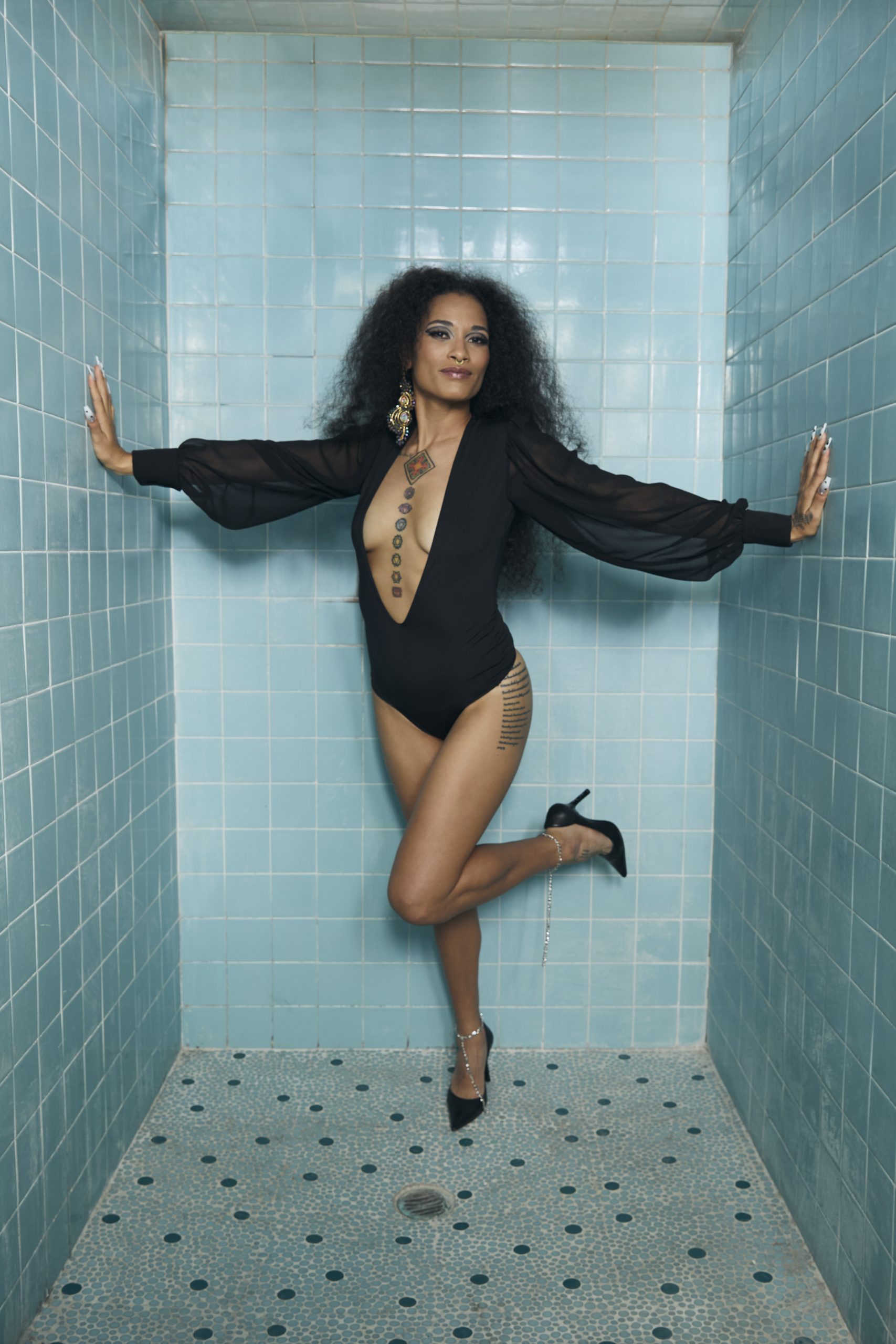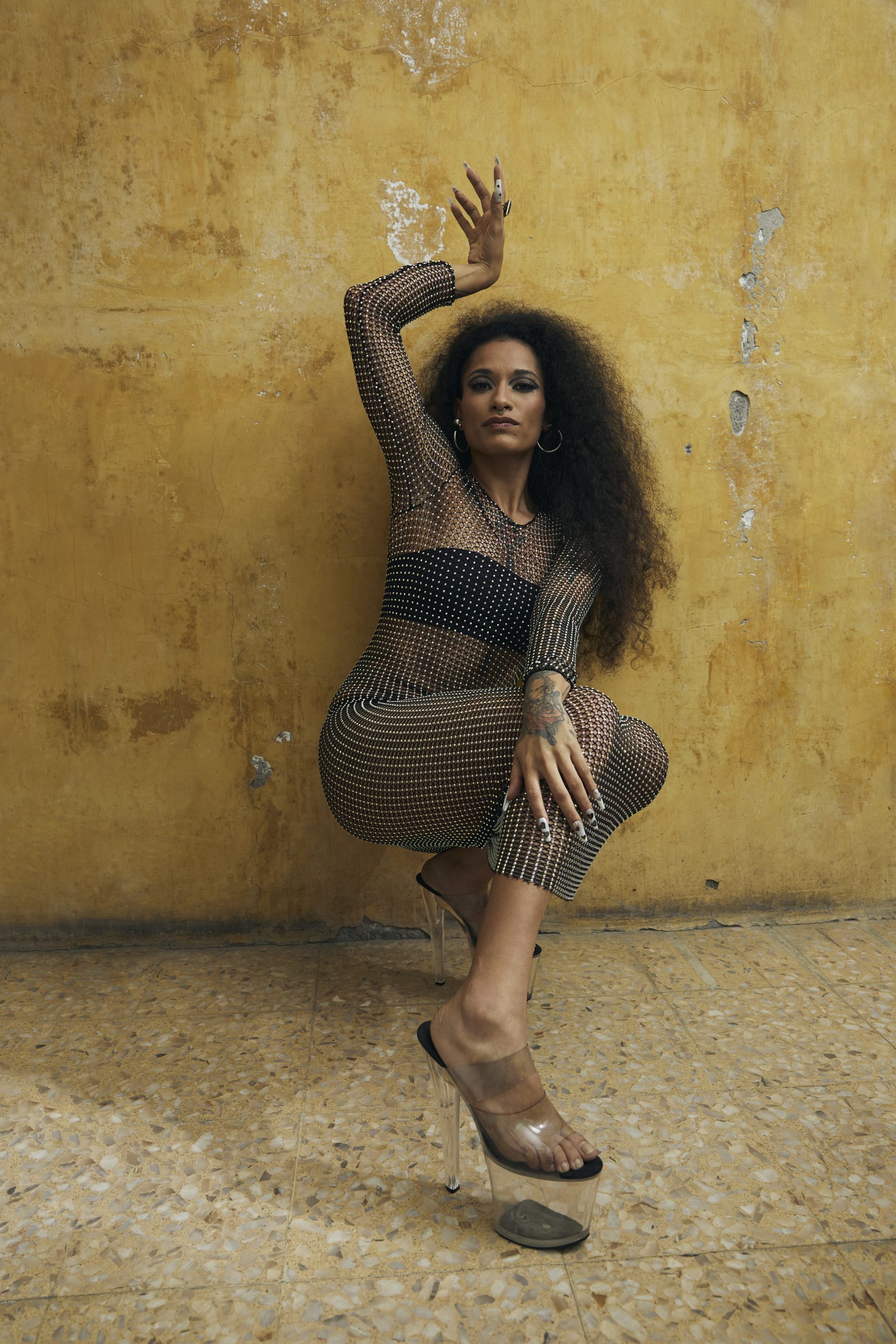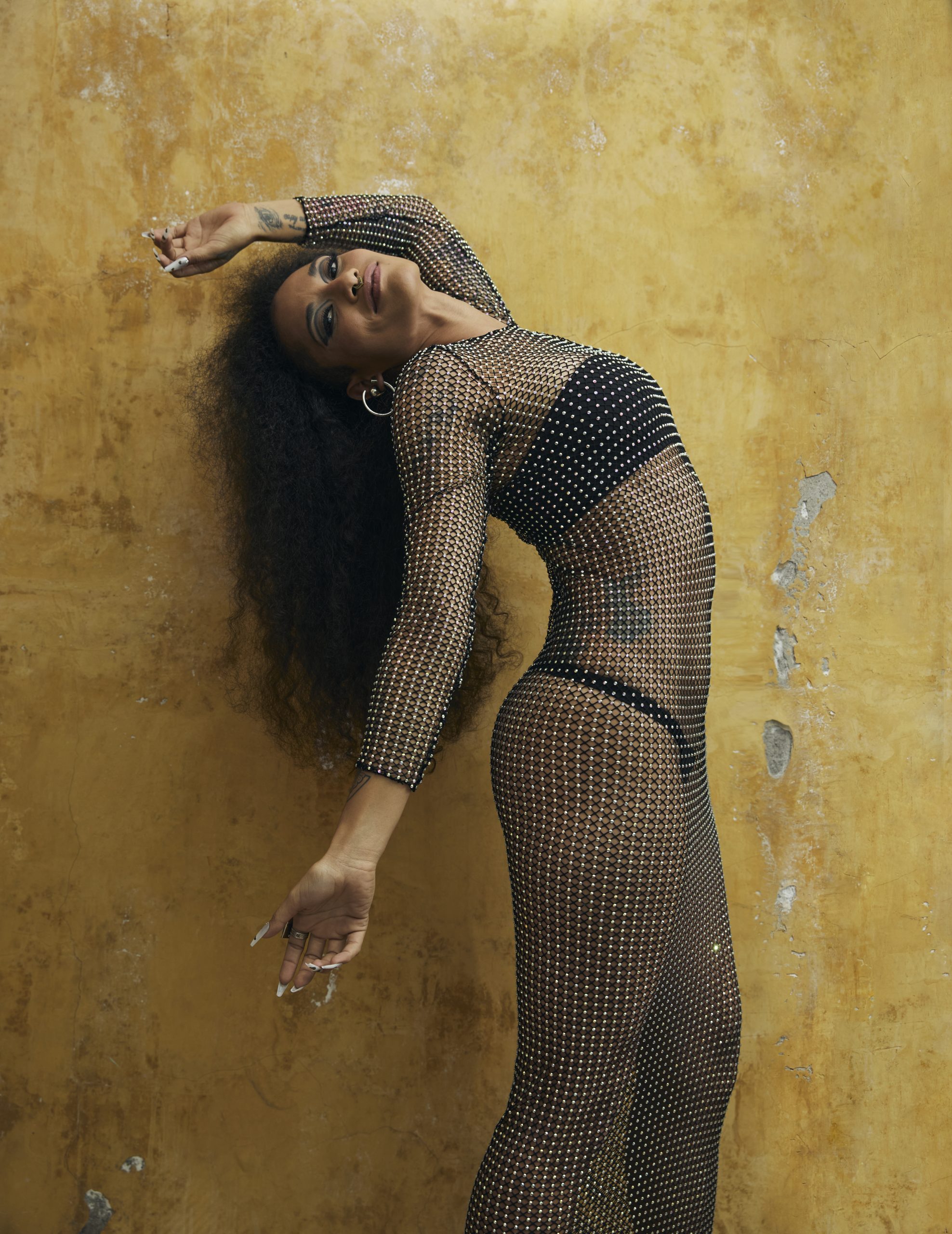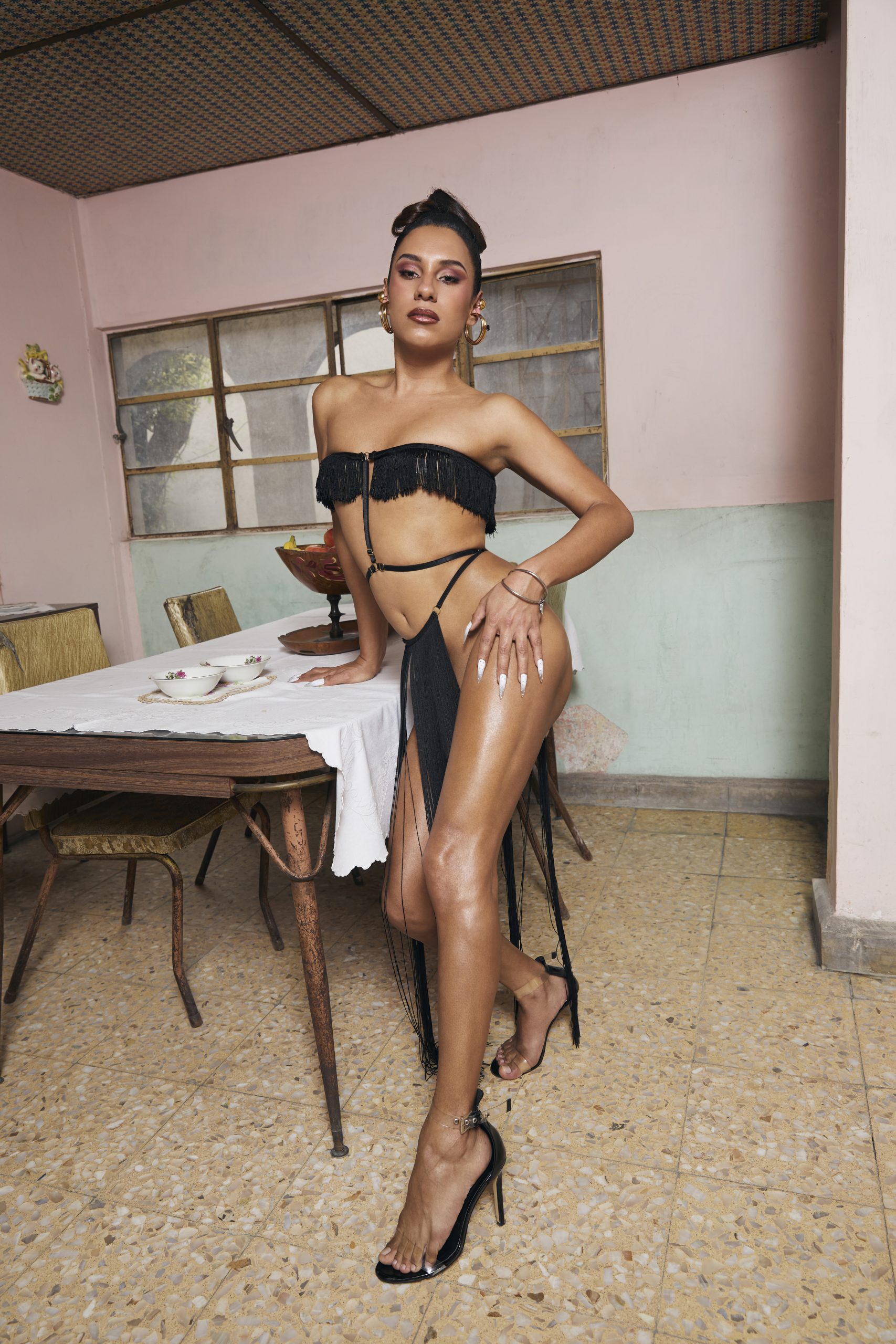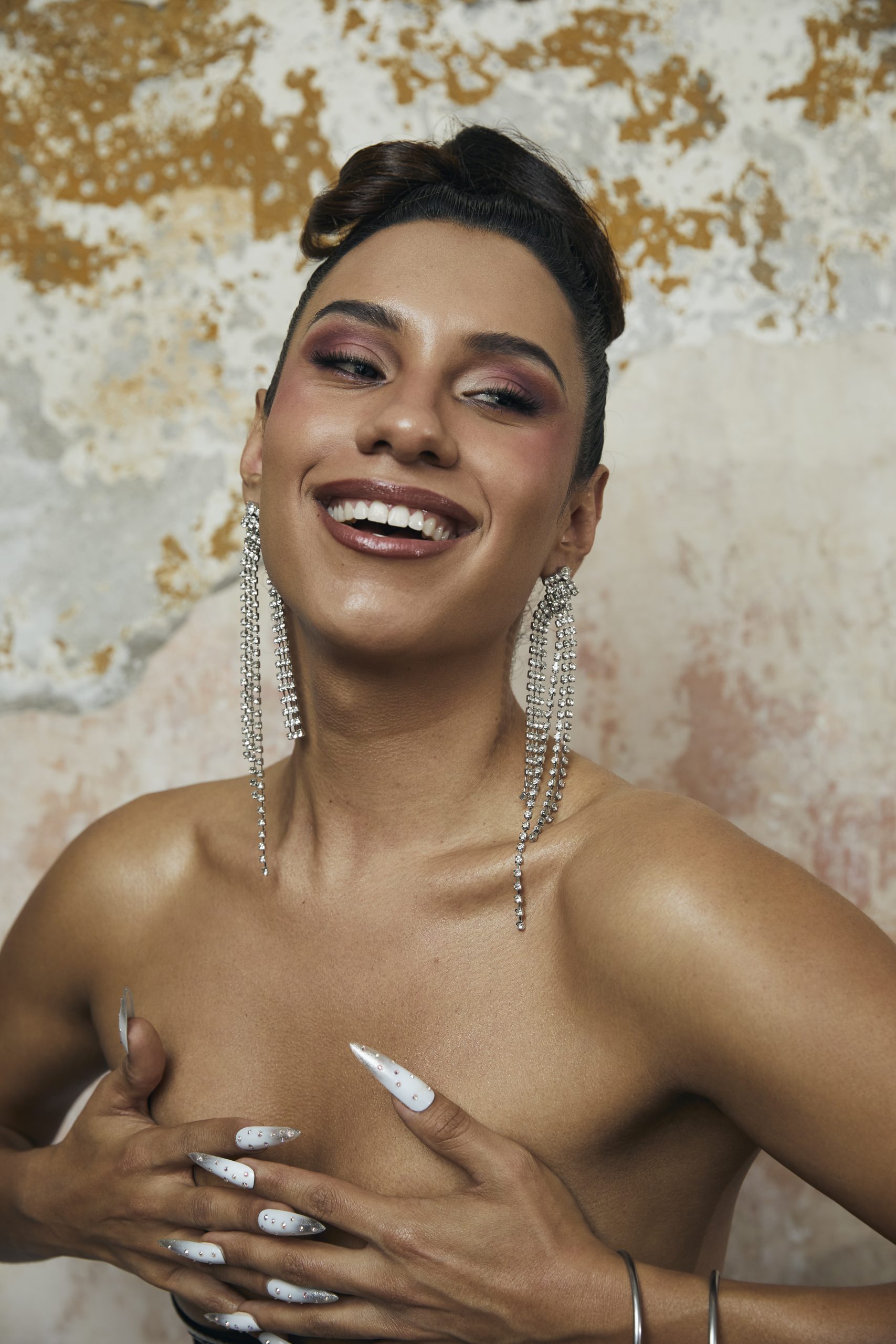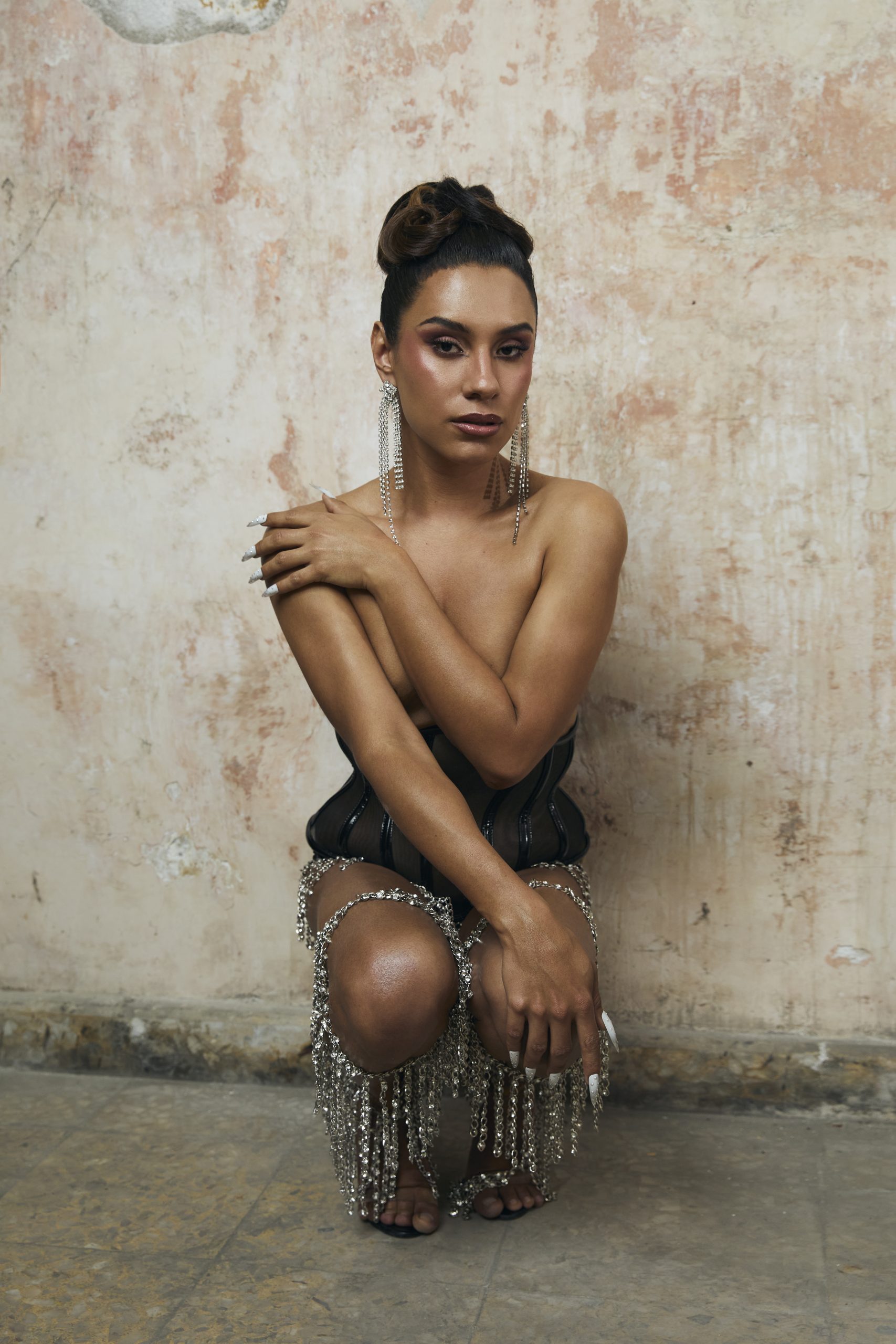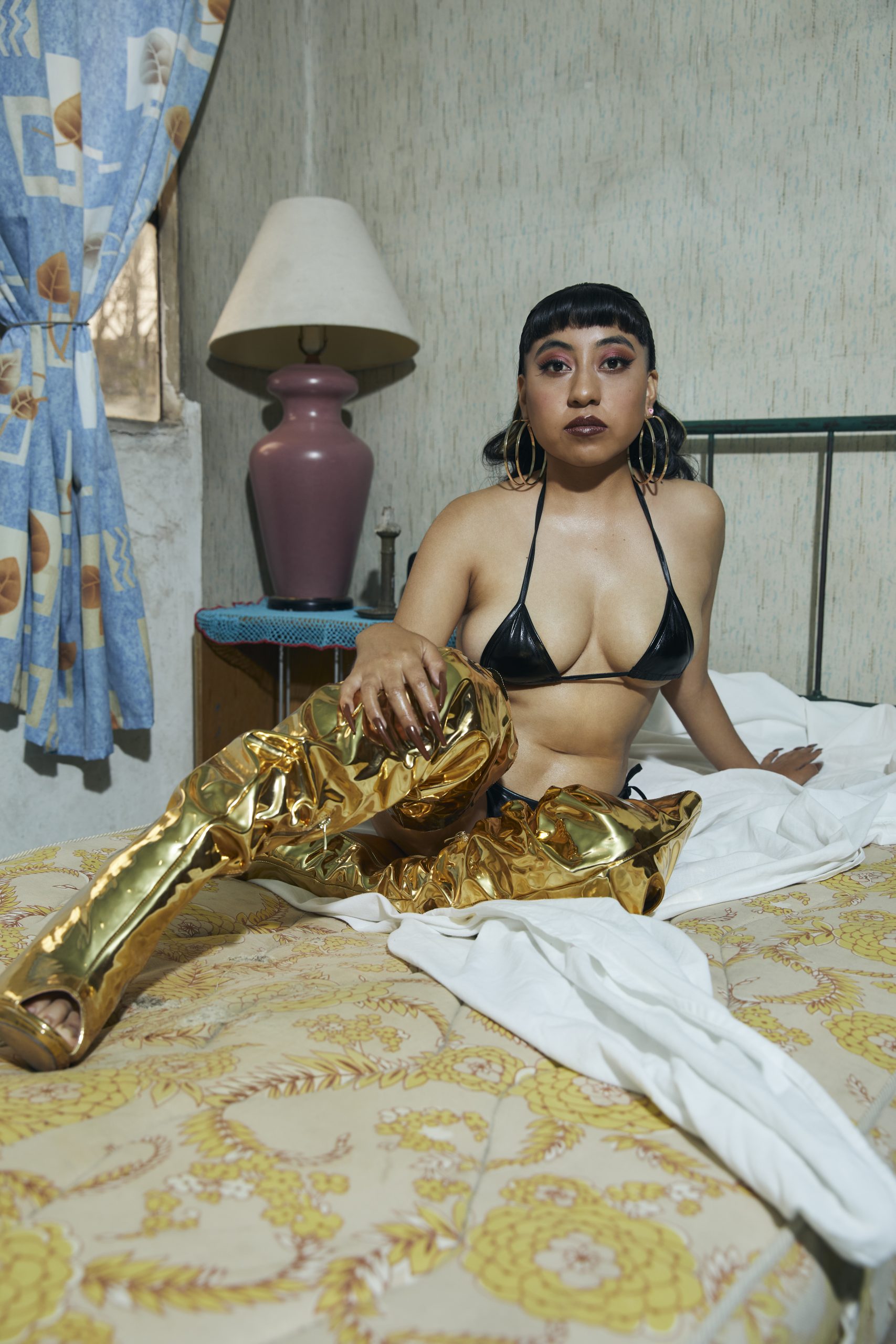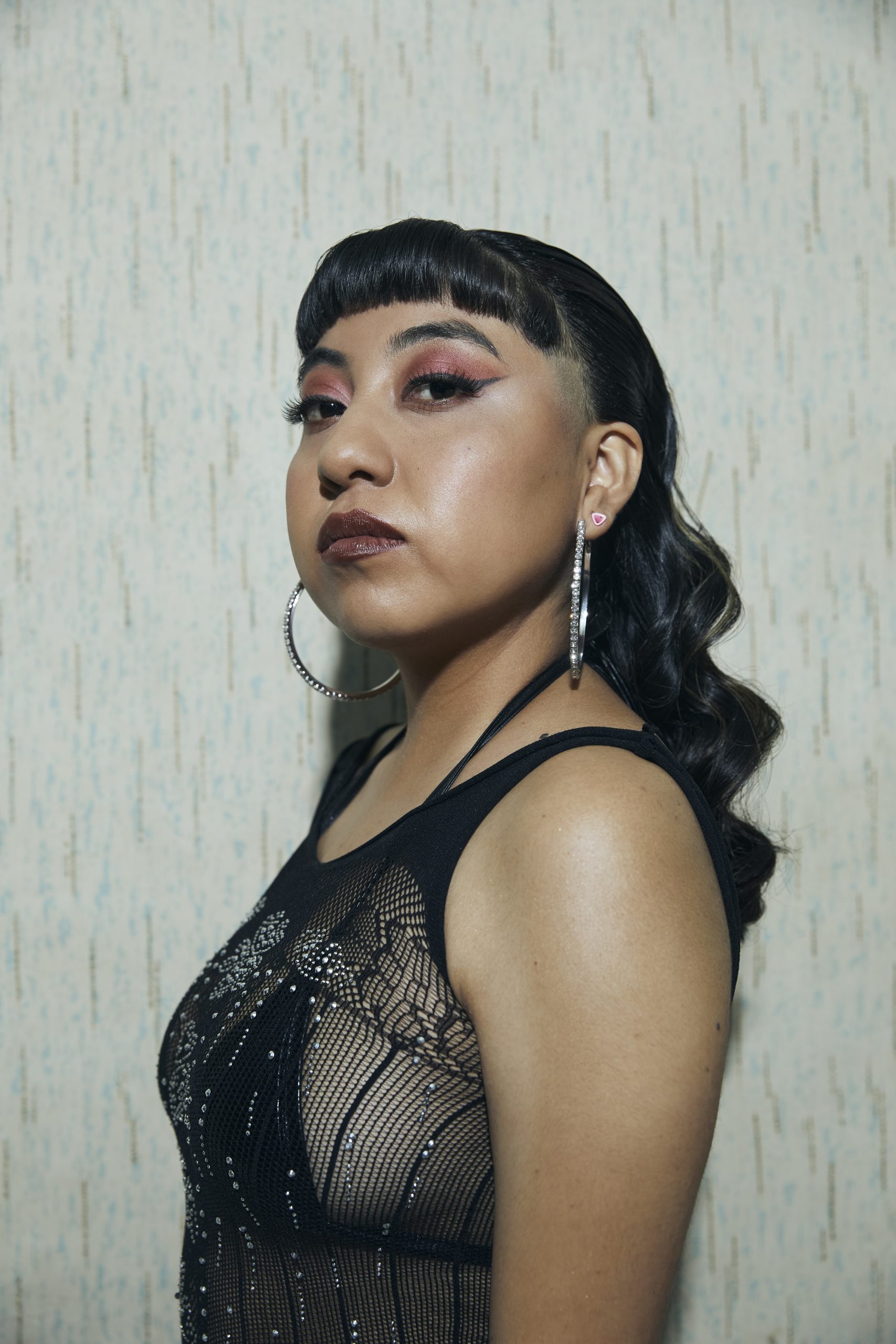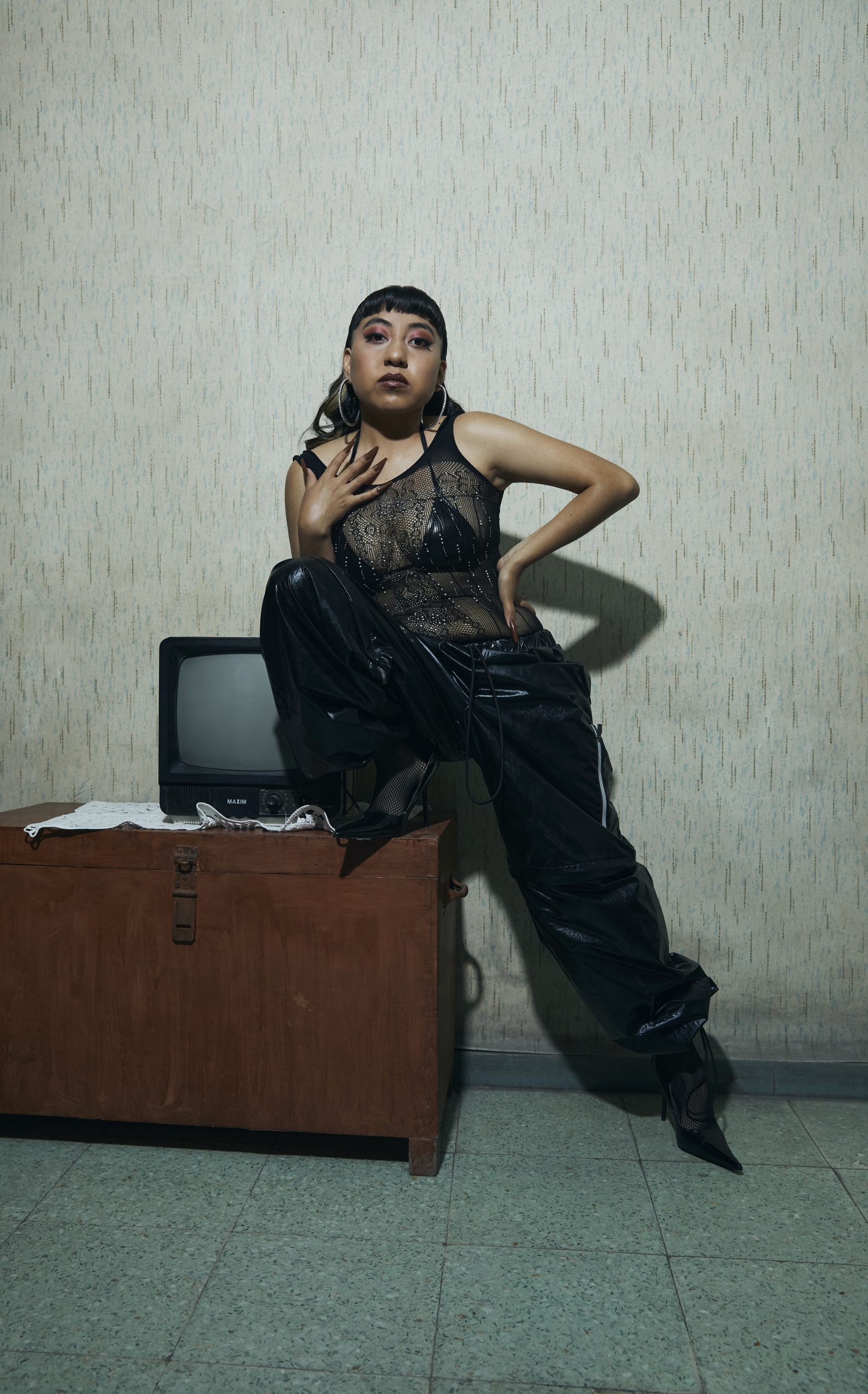“We fight today, so we don’t die tomorrow.” Just last year, femicide, the intentional murder of women, took the lives of approximately ten Mexican women per day.
This past March, photographer Dorian Ulises López Macías set out to pay homage to la mujer Mexicana. He photographed six women: Amina from Culiacan, Sinaloa; Aneken from Quéretaro, Quéretaro; Ariel from Mexico City, Mexico; Daniela from Mexico City, Mexico; Jewels from Xalapa, Veracruz; and Naohmi from Ecatepec, Mexico.
In light of the March 8th protests in Mexico City, we spoke with each woman on their identities and roles as Mexican women. We learned that Daniela dreams of being the first trans woman to win an Oscar and that Aneken sees herself as the future-face of Chanel. Amina told us that she hopes to share the inner and outer beauties of Mexican women through her careers in modeling and engineering. Jewels, a dance teacher, asserted, “Despite having been oppressed, we’re powerful, intelligent, wise — we’re everything they told us we couldn’t be.” By sharing their stories, we celebrate la mujer Mexicana.
AMINA
Amina serenaded us with her story, guiding us through her life with her sing-songy Northern inflection. Sitting in front of a wall lined with polaroids and a large caricature of herself, the six-foot-tall college student made one thing very clear: she has always stood out. At school, she was the first girl to join the boy’s basketball team — there were no girl’s teams. In college, she is one of ten women majoring in Industrial Engineering; and at her modeling agency, she is the only plus-sized model.
It has not always been easy. On Amina’s long walk from the school courtyard to the basketball court, boys would bark at her. In class, professors claimed that they would never hire female engineers or give full credit to anyone wearing a skirt. When she looked for work as a model in her hometown of Culiacan, Sinaloa, every agency responded in the same way: “We don’t take curvies.”
Amina had neither time nor energy for such negativity. “I don’t like bullies and I never stay quiet,” Amina asserted. She stood up to the boys who barked at her by encouraging them to do it to her face — they yielded immediately.
Amina traces her strength of character and determination back to her mother, a woman who grew up on a ranch and underwent multiple traumas. “Her dad died when she was young and she had to go out on her own…they wanted to kidnap her, and she was accosted on the streets,” Amina confided through tears. “She taught me to have strong values and to always respect others because everyone has some good inside them.”
ANEKEN
Aneken has always loved fashion. She cannot remember a time when she wasn’t sifting through magazines, researching poses and catwalks on YouTube, and admiring her hero, Naomi Campbell. When she was thirteen, Aneken passionately pronounced her dream to become a model, and her mother, “a strong woman who always worked and fought for what she wanted,” wholeheartedly supported this dream.
However, according to Aneken, being a model in Mexico is a “double-edged sword.” She explained, “brands are very drawn to our profile, beauty, and culture, but they also treat us like emotionless objects whose sole purpose in life is to serve.” Furthermore, the tall-blonde-blue-eyed archetype still holds a strong influence over the industry. Aneken, however, believes that “everything comes with its own set of challenges, and it’s up to every individual to face and overcome them.”
Overcome them, she did. Aneken is constantly travelling between the home she shares with her mother and sister in Queretaro and her modeling gigs in Mexico City. She even took a gap year to balance her new work-school-quarantine life. Today, Aneken is looking forward to her eighteenth birthday when she will finally be able to make her international debut. “I want the world to know that more Mexican women can accomplish it all, that they have the capabilities and intelligence to reach their goals. I want to tell little girls that dreams can come true.”
ARIEL
“Being a Mexican woman means not giving up and always moving forward,” shared Ariel, a nineteen-year old fashionista. As a trans woman in Mexico City, Ariel knows about determination and drive. Connecting over Zoom from her parents’ house, with a crucifix reflected in the television beyond her, she explained that she had always liked stereotypically feminine activities and clothes, but, for a long time, suppressed the feeling that she was a woman. “When I was teeny-tiny, I even tried on mom’s gorgeous red lipstick and felt absolutely stunning,” she said.
After seeing posts on social media from trans influencers like Victoria Volkóva and Ophelia Pastran, Ariel recognized that the way she had been feeling was normal, and she finally had resources to help. “I discovered that I was a woman when I was about seventeen years old,” she shared. Social media not only helped Ariel understand her gender identity, but also motivated her to start living her life in a way that made her feel happy and satisfied with who she was. When asked about her experience as a trans woman in Mexico, Ariel spoke on the violence that comes not only from men, but from fellow women: “Fortunately, I’ve learned to protect myself so that no person minimizes my experience as a trans woman.”
“This violence is part of Mexico,” she admitted, and while she understands the privilege of being born as a man into a machista country, she’d much rather fight alongside all the women with whom feels that she belongs. “It makes no sense to me that there are assassinations of people just because they are women,” she added.
When she’s not modeling, or honing her make-up skills, Ariel is fighting for social justice and representation. “Everyone is sick of seeing the same thing over and over again,” Ariel said about fashion, “Mexican culture, colors, and communities should serve as rich sources of inspiration in the fashion world.” She dreams of a world where Mexican women are recognized for uplifting a nation in shambles.
JEWELS
Jewels’s bubbly personality pairs perfectly with her long curly mane, local pride, and thirst for rebellion. Sitting at home in Veracruz, the twenty-nine year old told us all about her childhood as an athlete and her constant battle against female stereotypes — she did kickboxing, Tae Kwon Do, and basketball. “Moms are always talking about girls in pink, and the pretty dress, and I just wasn’t comfortable with that,” Jewels explained. When Jewels was eighteen, she quit her three sports after witnessing abuse and misogyny. “There was no one who would listen to me.”
Jewels’s mother, however, encouraged Jewels to sign up for dance classes — instilling the “gift of movement,” in her, as Jewels called it. Fueled by this encouragement, Jewels studied contemporary dance at the Universidad Veracruzana, but claims that her true education came from street dancing and hip-hop. Curling up on the grass of her garden and pulling her camera closer, Jewels expressed the joys of freestyling. “You need to know the technique, but this technique leads to immediate liberation.”
Jewels channelled her love of dance towards founding and co-founding dance collectives Foraneos Crew, Punkak Java, and Whackers Funk, making Veracuz a go-to spot for hip-hop lovers. Her hip-hop-as-medicine philosophy is “saving young people from any problems like psychological traumas or drug-abuses.” It also constantly challenges Jewels to grow. “My students help me feel more powerful still,” she exclaimed.
As for her future plans, Jewels hopes to foster intergenerational dialogues. In her words, “a kid has the power to teach us and return us to ideas we’ve forgotten.” She also wants to expand access to art for blind and deaf communities — she is taking up sign language now that her father is going deaf. She confidently asserted, “I see myself forging new paths and opening doors for lots of people. I’m kind of already doing that, but I want it to go even further.”
DANIELA
Sporting a leopard-print top, Daniela gracefully and valiantly walked us through her experience as a trans sex worker in Mexico City during a global pandemic. “Being a trans woman is a struggle every single day, but it is also a battle won every single day,” she asserted. “I’m sick and tired of being victimized because we trans women also have beautiful experiences; we start wonderful families, and lead quality lives. We may belong to a system that has marginalized us, but we’re not victims.”
The twenty-nine year old used to work as a makeup artist, but when COVID-19 stopped people from going out, it also kept them from hiring Daniela. She was terrified. “I realized I was living my life. No one was giving me a single peso, no one is feeding me, no one is worrying about me — because it’s no one’s job to do that — but I needed to do something for myself.”
Daniela overcame preconceived notions that she had about sex work or the porn industry and created an OnlyFans account. She is now using it as a space to show “a dissident identity.” She wants to show the world that even though her body strays from conventional Mexican ideals about sex and gender, it is still beautiful, it can experience pleasure, and it can be sexy. Daniela has had to fight for her new career — Instagram and Facebook banned her from promoting OnlyFans. Daniela believes that they did so because “they don’t want to see the trans reality.” Despite these obstacles, she keeps her chin up. “It’s been very empowering. I used to be afraid of looking at myself in the mirror.”
NAOHMI
“My name is Tania Naohmi Dominguez Romero, a very long name for a very small person. It’s easier for me to be called Naohmi Dominguez,” explained the twenty-four-year-old artist from Ecatepec. Living on the outskirts of Mexico City, Naohmi has firsthand experience recognizing the differences between people living in Mexico City and those living in Mexico State. The outskirts of Mexico City can be chaotic. According to Naohmi, “people’s long commutes have huge effects on their relationships with their families and communities.”
Sitting at home, Naohmi shared her observations about the marginalization of the people who “make the city work” but live outside the Mexican capital: they cannot use fashion to express themselves because they wear uniforms, they have no time for hobbies because they spend up to six hours a day commuting to and from the city, and they will not vigorously pursue their ambitions or educations because they are physically exhausted from labor and travel. Naohmi responds to these social gaps through her art. She uses old clothes, candle wax, and plastic jewelry to create sculptures and pottery that represent and critique the struggles of the Mexican community outside of the city.
Growing up, Naohmi felt particularly unsettled when she realized there were neither resources nor information available about female artists from Mexico State. Naohmi does not want to be famous, she told us, but she does want artists like her to have more visibility. “There are no galleries on this side,” she shared, referring to the outskirts of Mexico City. Her dream, other than drawing attention through art projects to life on “this side” of the state, is for “Mexican women not to have to worry about anything. We should wear what we want to wear, eat what we want to eat, and feel confident in our own bodies.”
CRÉDITOS EQUIPO
Fotografía y dirección – Dorian Ulises López Macías
Producción – Carlos Castellanos para In The Park Productions
Estilismo de moda – Ricardo Arenas
Pelo – Erich Clemenz
Maquillaje – Adrián González
Uñas – Karla Donato
Asistente de producción – Eva Domínguez
Asistente de fotografía – Alexis Rayas
Retoque fotográfico – Paul Sangster
CRÉDITOS MODA
AMINA: Dress by Eva Urìas. Hat by Ocana Ramos. Earrings by Gustavo Helguera.
ANEKEN: Bodysuit by Les Jesus. Earrings by Collarcito de Moda and Gustavo Helguera. Hat by Panuco. Skirt by Instein.
ARIEL: Earrings by Gustavo Helguera. Top by Marika Vera. Skirt by the Weird Market. Dress by Eva Urìas y Ricardo Arenas.
DANI: Earrings by Avec Joyeria. Lingerie by Marika Vera.
JEWELS: Earrings by Powo Kani and Avec Joyeria. Bodysuit by Marika Vera. Dress by WAVEY.
NOHAMI: Stylists own apparel.
